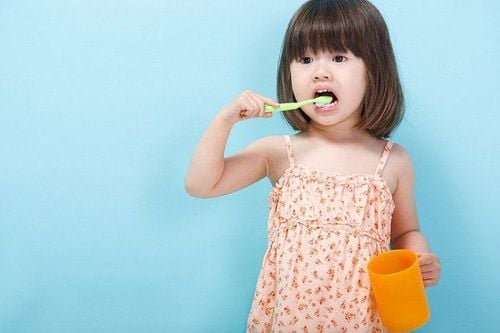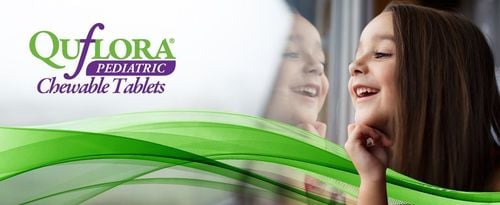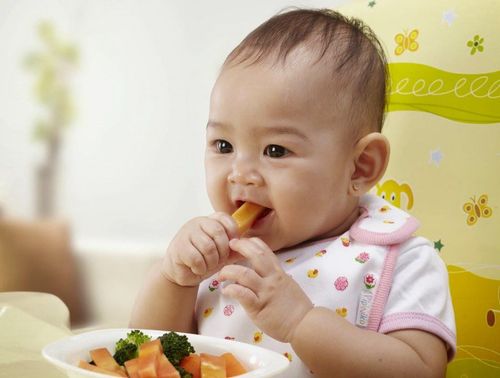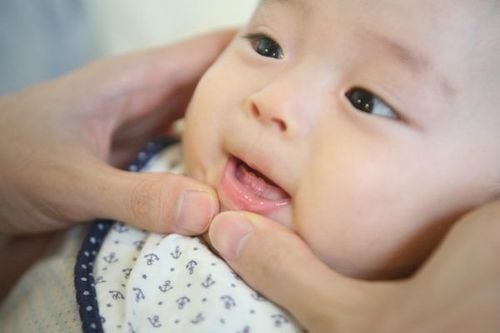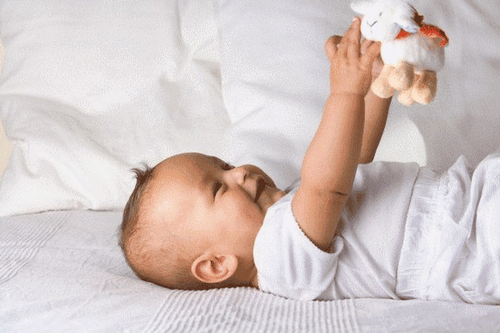This is an automatically translated article.
Nowadays a lot of children have tooth decay. To protect your child's teeth, you need to instruct him to brush his teeth properly at least twice a day. But many parents still do not know whether young children need toothpaste or not, which type to choose and how much toothpaste to use each time?
1. How much toothpaste should children use each time?
The best way to brush your child's teeth is to use a small, soft toothbrush and some fluoride toothpaste. You can choose any toothpaste that contains fluoride. Note that many toothpastes for babies and children are marketed as fluoride-free.
As soon as your child's teeth begin to erupt, use a small amount of baby toothpaste the size of a grain of rice. After your baby is 3 years old, you can use a pea-sized amount. Be sure to follow these recommendations and age-specific oral care guidelines to prevent your child from getting too much fluoride.
Fluoride offers a number of benefits to children's developing teeth. This mineral strengthens tooth enamel, fights acids and harmful bacteria, thereby preventing tooth decay. Young children can get fluoride from toothpaste, water, and supplements if needed. Bottled water and fruit juices can also contain fluoride, although that is not always stated on the label. Sometimes the dentist will also coat your child's teeth with fluoride varnish during each visit.
Most city water supplies are sufficiently fluorinated. If you get water from a well, consider purchasing a water source test kit from your local health department or pharmacy. If the fluoride level is <0.3‰ (less than 0.3 parts per million), ask your dentist if you should give your child a fluoride supplement.
Note, just a little fluoride is good for your child's teeth, but swallowing too much fluoride over time can lead to fluorosis. The manifestation of this condition is the appearance of white spots on the child's teeth. That is why too much toothpaste should not be used on children, especially when children do not yet know how to rinse and spit out.
Some dentists also recommend flossing to clean between your baby's teeth. The best time to floss is right after your child brushes so that the floss carries the fluoride from the toothpaste down between the teeth.
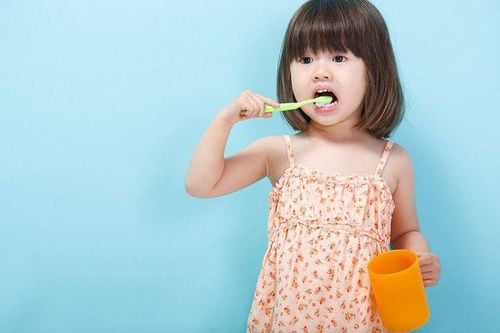
Cha mẹ nên lựa chọn loại kem đánh răng dành riêng cho trẻ nhỏ
2. When can children start brushing their own teeth?
Although children under 7 years old may not be proficient at brushing their own teeth, you should let your child try and practice as soon as he is ready. The general rule when children brush their teeth is:
Brush teeth twice a day, in the morning and evening after dinner Gently brush the teeth on both the inside and the outside Don't forget to clean the tongue to remove bacteria that cause bacteria. Bad breath Teach your child to rinse his mouth with water to avoid swallowing toothpaste. When starting to teach children to brush their own teeth properly, parents also brush their teeth together with their children, then check each other's teeth for cleanliness. Tell your child that you've spotted places he forgot to clean, and let him look for and spot your brushing "mistakes".
If your child is fussy when it's time to brush his teeth, you can buy him a toothbrush with his favorite cartoon character. You can also prepare a variety of toothbrushes with different colors for your child, then let them choose which one they want to use during brushing time that day. Don't forget to replace your baby's toothbrush with a new one when the bristles start to wear out or come off.
Another solution is to let your child brush his teeth during distractions, such as watching TV, to help him get used to the taste and feel of brushing. One parent suggested brushing her child's teeth while she was playing in the tub. You can brush the teeth of your child's plastic ducks and other toys, tell them that "you" are all clean when they get into the tub, and advise them to do the same.
3. Prevention of tooth decay for young children
The cause of tooth decay in children is mainly because they often eat snacks, but do not know how to clean their teeth. Sweets (including fruit, dried fruit, juices and foods like peanut butter and jelly) and starches (like bread, cookies, pasta, etc.) ) can contribute to tooth decay.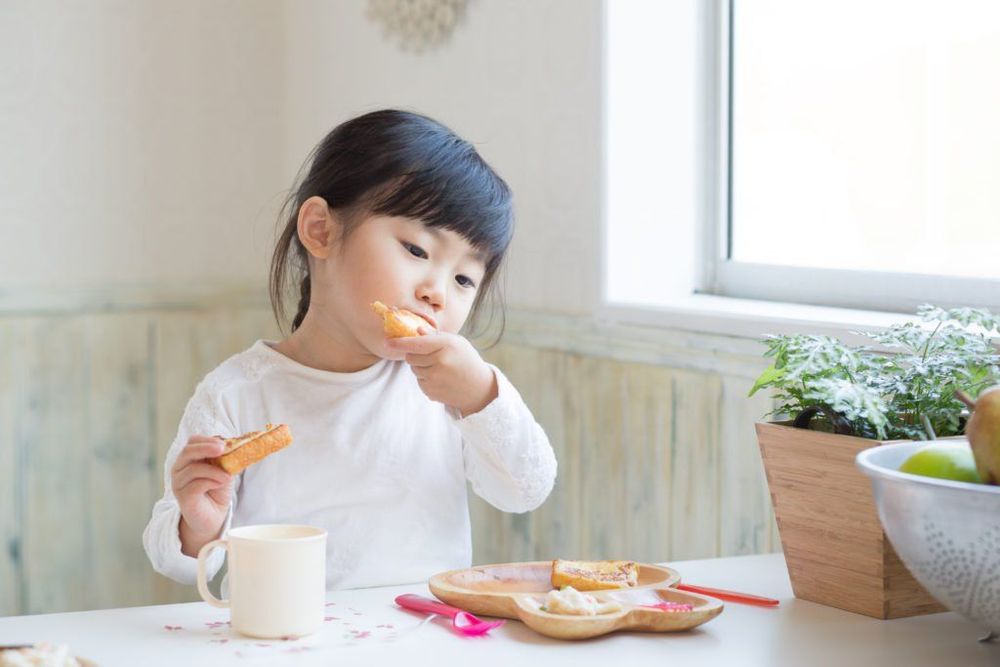
Nguyên nhân sâu răng ở trẻ em chủ yếu là do các bé hay ăn vặt
You can encourage children to use these foods at meals instead of snacks so that they are easily decomposed and do not stay on their teeth for too long. Eating these with water is also very helpful. In addition to limiting snacking, parents also need to add more fiber and calcium in their meals to help their baby's teeth develop better.
The American Academy of Pediatrics recommends taking your child to the dentist within 6 months of their first tooth coming in or before their 1st birthday. If you haven't taken your child to the dentist yet, schedule an appointment as soon as possible. Then follow your dentist's instructions and follow-up appointments on time.
Children need to provide enough elemental zinc/day for them to eat well, reach the correct height and weight and exceed the standard. Zinc plays a role in affecting most biological processes taking place in the body, especially the breakdown of nucleic acids, proteins... Organs in the body when zinc deficiency can lead to a There are a number of diseases such as neurological disorders, irritability, etc. Therefore, parents need to learn about the role of zinc and guide them to appropriate zinc supplements for their children.
In addition to zinc, parents also need to supplement their children with other important vitamins and minerals such as lysine, chromium, B vitamins,... errands.
Please regularly visit Vinmec.com website and update useful information to take care of your baby and family.
Reference source: babycenter.com




